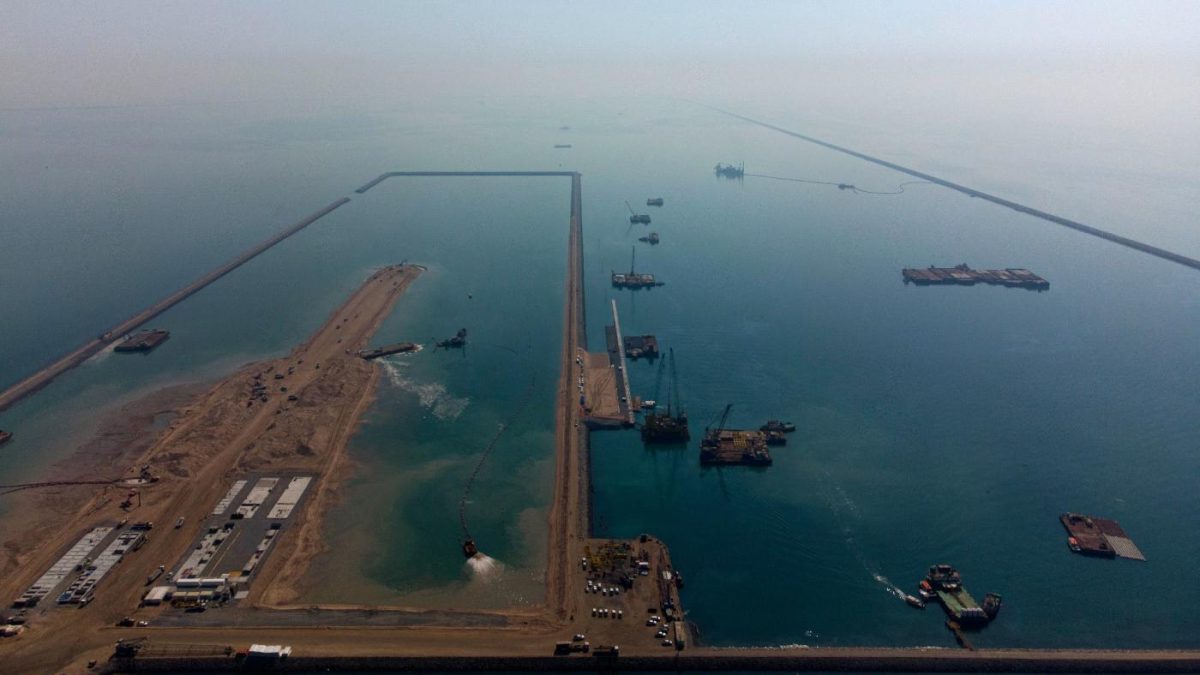Iraq has launched an ambitious 1,200km rail and road infrastructure project spanning the length of the country, which seeks to link Europe with the Middle East and Asia.
The $17bn project, dubbed the “Route of Development”, would tie the Grand Faw Port in the oil-rich south of the country to the Turkish border in the north. It could rival Egypt’s Suez Canal as the region’s transportation hub.
Al-Sudani launched the plan during a conference on Saturday with transport ministry officials from Iran, Jordan, Kuwait, Oman, Qatar, Saudi Arabia, Syria and the United Arab Emirates.
“We see this project as a pillar of a sustainable non-oil economy, a link that serves Iraq’s neighbours and the region, and a contribution to economic integration efforts,” Sudani said.
The project will include high-speed trains moving both goods and passengers at up to 300km per hour, and reconstructing the country’s road network.
The current rail network includes a slow oil freight and an overnight passenger train from Baghdad to Basra, which takes up to 12 hours to travel 500km.
The new route is set to consist of around 15 stations, including the cities of Basra, Baghdad and Mosul.
The Iraqi parliament’s transport committee announced that any country that wished to “will be able to carry out part of the project”, which it said would be completed in “three to five years”.
Work is already underway on the commercial Grand Faw Port, a new sea port that lies on the northern tip of the Persian Gulf.
Iraqi infrastructure has been ravaged by decades of conflict, including the US invasion and subsequent war in 2003, and the fight against the Islamic State group, which seized almost a third of the country before being beaten back by late 2017.
In recent years, Iraqis have seen a reduction in security measures and direct armed confrontations and bombings, but political gridlock and uncertainty has slowed the reconstruction process.
